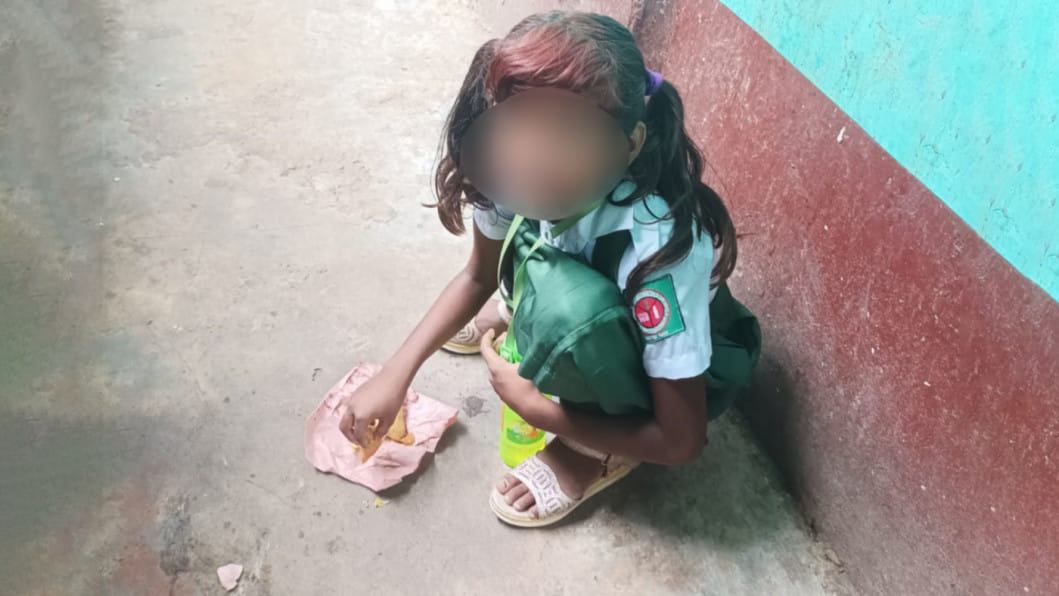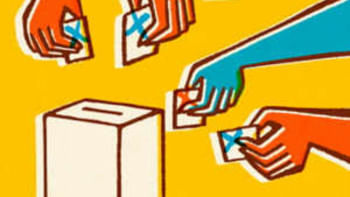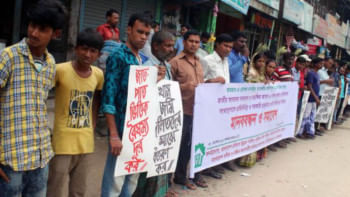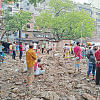Will things ever turn for the better for Harijans?

Recently, I visited Kulaura railway junction in Moulvibazar to talk to a railway official about the progress in the Bangladesh-India rail link project there. A colleague somewhat forced me to go to a nearby restaurant with him. It was quite crowded when we got there. We were trying to figure out why there was such a crowd when I discovered a small girl sitting on the ground, eating, in a dirty alleyway beside the restaurant. The scene rendered me speechless.
There was a lot of chatter inside the restaurant. I overheard some people say they didn't want to eat there because Harijans came to that restaurant to eat.
Then I met Tinku Lal Basfar, a resident of Harijan Palli, who also happened to be the girl's uncle. He told me that his niece, Bira, a first-grader, wants to drop out of school because she feels isolated from her peers. She is treated differently, considered an "untouchable," because she belongs to a lower caste Hindu community, more commonly known as the Harijans.
Every day, on their way home from school, her friends go to this restaurant for snacks. She tags along with them, donning the same uniform as they do. But while her friends are allowed into the restaurant, she's not. What she's allowed to do is sit in an alley outside the restaurant – where its workers dump the garbage – and eat. If she asks for a drink of water, she is served in a dirty cup. Bira often wonders why she is treated this way, but can't figure out the answers to the questions that cloud her young mind.
Bira's friends also ask her why she's made to sit in a dirty place outside the restaurant, made to eat on a dirty plate. Some of them even tell her that's because her people are "cleaners."
Little Bira feels distraught by all of this. Sometimes she even asks her mother about it, but her mother has no answers. The reality, as painful as it might be to digest, is that Bira's mother, Daliya, is employed as a cleaner in the city. That is her job 365 days a year. Her "unpleasant" profession has now become a barrier to her child's education.

This is how it has been for generations of Daliyas and Biras – being subjected to humiliation and discrimination, because their job is to keep our cities clean. Has anyone ever wondered what would happen if, refusing to not be treated with such indignity, they decided to stop doing their job? What would befall our cities, then?
We brag about development and growth in our per capita income, but have they truly reached all corners of Bangladesh? Why are people like the Basfars made to feel such indignity?. Why are they still treated as "untouchables"? Why is there no ray of hope for them when they think of their children's future?
We may be making progress on several indicators, but when it comes to treating every job and honest labour with respect, our society lags far behind. The humiliation that Bira faced exposes our narrow-mindedness, our lack of humanity.
I visited Daliya Basfar's house. Her family told me how the city used to be greener, how there was more space. Powerful people pushed them into a corner, marginalising them over time, encroaching their colonies further and further.
Article 27 of our constitution states, "All citizens are equal before law and are entitled to equal protection of law." Section 28 (1) says, "The state shall not discriminate against any citizen on (the) grounds only of religion, race, caste, sex or place of birth." But the sad reality is this protection exists only on paper. It's not only Harijans – the sufferings of people from minority communities, people stricken with poverty are compounding day by day, all across the country. Equality is yet to be a reality in our society.
"There is no justice for us, anywhere," Bira's uncle Tinku Lal Basfar told me.
It would be fair to expect that, 51 years after independence, Bangladesh would be rid of all injustice, discrimination, exploitation and deprivation to build an equal and humane society. It would be fair to expect that children like Bira could eat at any restaurant she chose to, with her friends and classmates, and not be made to sit outside. It would fair to expect that she would not be subjected to any discrimination based on her background and community. We have to move forward, united, and not leave anyone behind.
I hope Daliya and her family get justice. What has happened cannot be changed, but the government can stand with the Harijan community and help establish their rights as equal members of our society. The owner of that restaurant in Kulaura can be more empathic to those less privileged. The government can make efforts to fill up the gulf between it and the minority, marginalised communities in the country, and be more understanding of their plight.
Mintu Deshwara is the Sylhet correspondent for The Daily Star.
Translated by Azmin Azran.

 For all latest news, follow The Daily Star's Google News channel.
For all latest news, follow The Daily Star's Google News channel. 








Comments